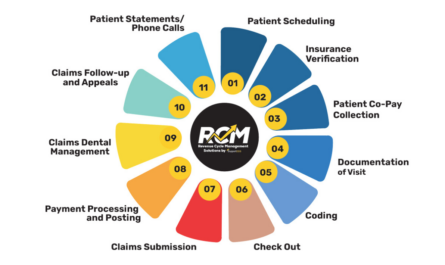By Eric Scalzo, Partner, Holland & Knight
When exploring the viability of forming a Dental Service Organization (DSO) it is crucial to weigh several critical
factors. These considerations can significantly influence your decision-making process and the eventual success of your venture. Here are the top five things you need to know when forming a DSO:
1. State Regulatory Requirements
Understanding the regulatory environment that your DSO will operate under is key to keeping your operations compliant. Each state has different rules and regulations and 5 states even allow the DSO to directly own and operate the dental practice. Most rules and regulations are published; however a number of states have “desk-drawer” rules that regulators enforce due to custom and practice – not based in written law or regulation. Consulting with a legal expert who understands the nuances of operating in each state is necessary to ensure that your DSO does not run afoul of any healthcare law, regulation or desk-drawer rule.
2. Housing Employees
The entity in which your employees are based is another crucial factor. Driven largely by state regulatory requirements, the entity in which the employees are employed make a huge operational difference. Certain employees can be employed by the DSO, even certain employees physically located within the affiliated dental practices; however, others must be employed and controlled by the professional dental entities. It is important to create a structure that can be utilized as you grow so as to keep the number of different work streams to a minimum. Consulting with a legal expert who understands the legal requirements as well as the operational implications of this crucial step is important, as is establishing a clear and effective communication system and robust management strategy to ensure consistency and quality across all locations while maintaining regulatory compliance.
3. Complicated Benefits
Managing employee benefits within a DSO can be complex due to the varying roles and locations of staff as well as the multiple employers and often similar ownership and control groups. Benefits such as health insurance, retirement plans and bonuses need careful administration when there are several potential employers. The larger and more spread out the organization, the more challenging it becomes to manage these benefits equitably and efficiently. It is essential to establish a strong human resources department or partner with a firm that specializes in managing benefits for distributed teams. A careful legal analysis of your structure, ownership group and benefits plans is necessary to ensure compliance with applicable laws while keeping the costs of such plans low.
4. Taxes Can Be Complicated
Taxation in DSOs involves several layers of complexity. The chosen legal structure and service agreement approach heavily influences tax obligations. For instance, corporations are generally subject to double taxation on profits and dividends, whereas LLCs enjoy pass-through taxation. Recent IRS guidance suggested that the IRS was going to review relationships where related entities are providing services in exchange for service fees to determine whether certain business deductions would be allowed in certain structures. As of now it appears the IRS has abandoned that review; however, keeping various tax issues and potential tax changes in mind while structuring your DSO is important to ensure that you have flexibility as you grow and as the rules change. Additionally, multi-state operations face varied state tax laws, requiring strategic planning to minimize tax liabilities. Engaging with a tax advisor who specializes in healthcare entities is critical to navigate these intricacies effectively.
5. It Doesn’t Always Make Sense to Form a DSO
Finally, it’s important to recognize that forming a DSO is not suitable for everyone. Assessing whether a DSO structure makes sense for your business involves understanding your growth objectives, management capacity and financial goals. DSOs can offer significant advantages, such as operational efficiencies and access to capital, but they also come with increased regulatory scrutiny and administrative overhead. Sometimes maintaining separate practices or exploring alternative business models may be more beneficial – especially if you plan on scaling and selling in the near-term
As with everything, competent counsel with experience in the space is important to avoid common mistakes and pitfalls. Forming a DSO involves intricate planning and a deep understanding of the legal, operational and financial factors. Each aspect, from the legal structure to the practicality of forming a DSO, needs careful consideration. By addressing these key areas you can better prepare for the challenges and opportunities of establishing a successful DSO.
Eric Scalzo is a healthcare attorney in Holland & Knight’s Nashville office. Mr. Scalzo focuses his practice on physician practice management companies, with a particular focus on dental support organizations (DSOs), representing large practice groups and DSOs.
Mr. Scalzo represents private equity clients, portfolio companies and founder physicians and dentists in the formation, acquisition, growth and sale of physician group practices and portfolio companies in the practice management space.
In addition to his legal practice, Mr. Scalzo presents regularly around the country on legal and regulatory issues affecting DSOs.






